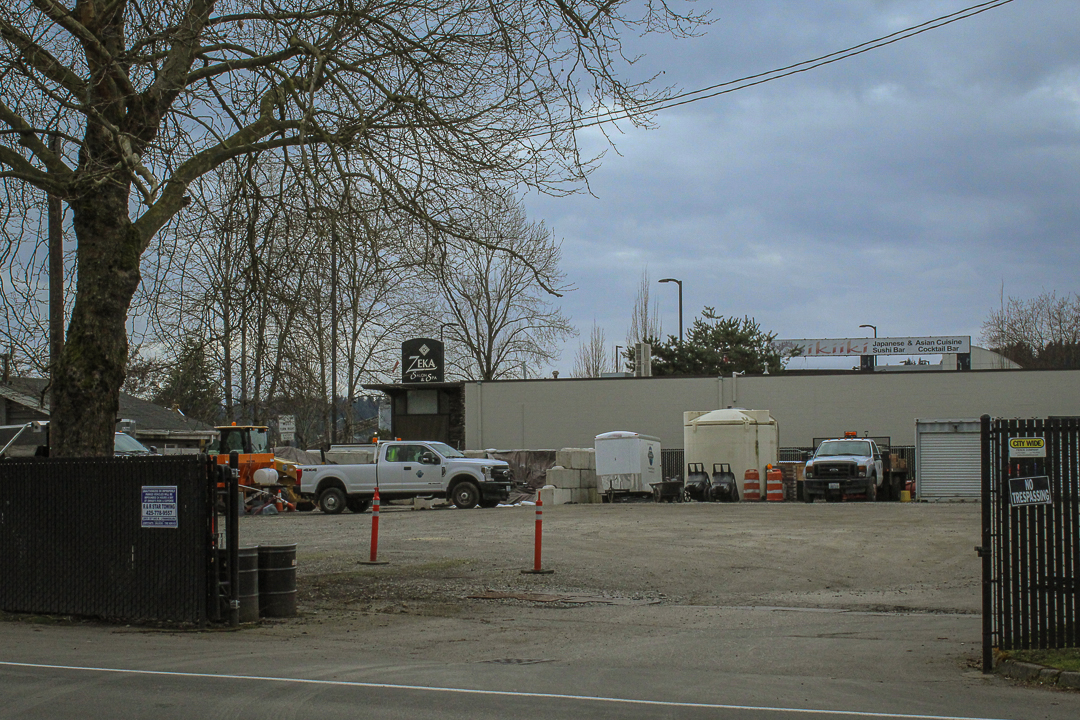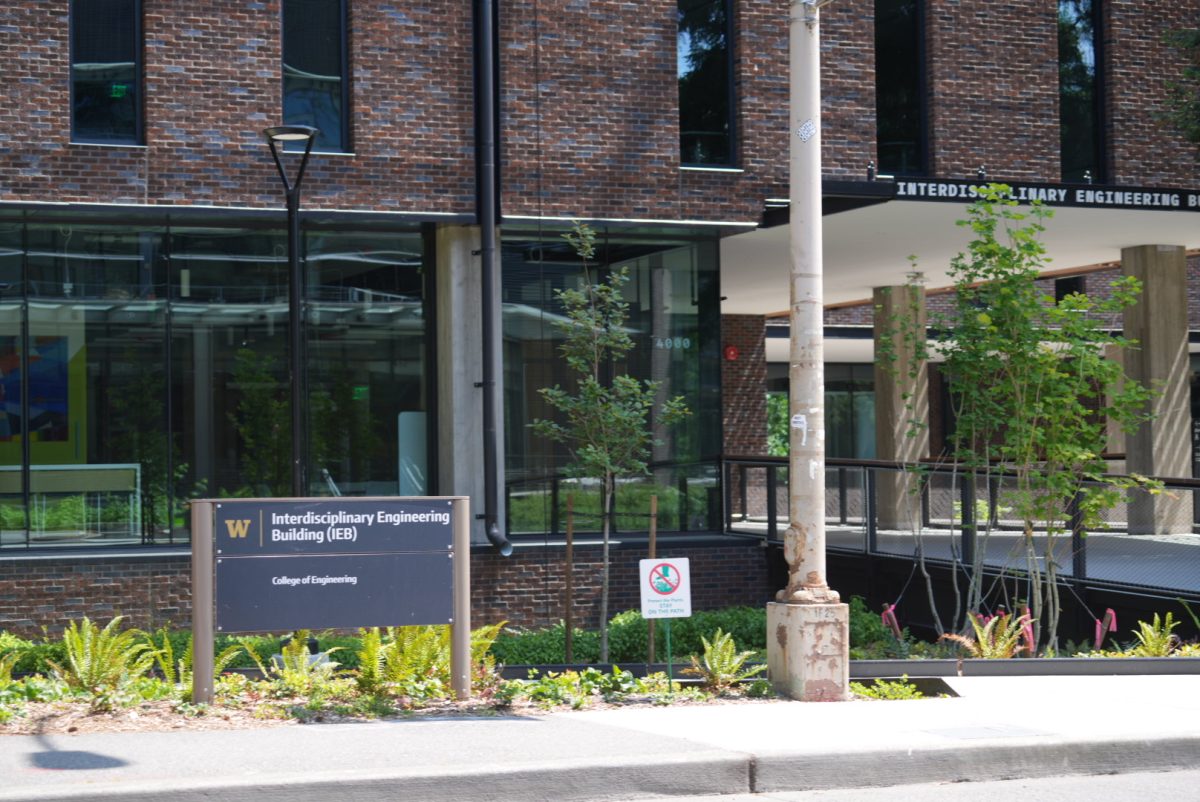The Kenmore City Council voted 5-2 against the construction of a permanent supportive housing facility in downtown Kenmore on Jan. 22. City Council members cited safety concerns and the economic strength of Kenmore as reasons not to continue with the project.
King County has an estimated 40,000 homeless individuals, the leading cause being a lack of affordable housing, according to the King County website. Kenmore, Redmond, Bothell and many other cities have made housing as their top priority in recent years.
The affordable housing project started in June 2022, when the Kenmore City Council sent out a request for proposals for the usage of a plot of land owned by the city of Kenmore. The terms for the proposal were that there would be at least 80 units of housing for those who make 30% or less of the median income in Kenmore, which is less than $28,000 a year as of 2023, specifically to serve veterans, the elderly and disabled people. Plymouth Housing, a non-profit organization that creates affordable housing, responded with a design for 100 single bedroom units of permanent supportive housing. The housing unit would have also included amenities like health care services, behavioral health services and space for communal activities, all financed through housing vouchers from King County and a 30% of tenant income. A partnership with Plymouth Housing was quickly approved in summer of 2022, and over the next year, funding was secured for the project; sources included the City of Kenmore, ARCH and a variety of other affordable funding programs.
However, after the over eight-hour long council public hearing on Dec. 11, 2023, the city council voted to provisionally turn down the project, due to changes in the project’s scope determined by funding. In the beginning of January, three newly elected council members convened to reconsider the project, but shortly after, the council voted to end the project on Jan. 22.
Councilmember Nathan Loutsis (he/him), who voted in favor of ending the Plymouth Project, noted that in the beginning, it seemed to be going great.
“The Council at the time fell in complete love with it,” Loutsis said. “They loved it. It was 100 units of senior and veteran housing for low income residents in Kenmore; it’s absolutely awesome.”
However, as time passed, Loutsis and other council members grew more concerned.
“This funding came with strings,” Loutsis said. “So some of them said we don’t want you to restrict it to seniors and veterans; we don’t want you to restrict it just to Kenmore residents. If we’re going to give you this money, you have to open it up to a wider range.”
For Loutsis, those goals were far from the original purpose of the project.
“It’s a little bit different now because now you’re not talking about veterans and seniors in Kenmore, you’re talking about county and regional-wide folks who are exiting homelessness with disabilities, which requires more support in a different way,” he said.
Other complications also came with the process of passing the project. Deputy Mayor and Councilmember Melanie O’Cain (she/her) felt that communication between the council and the Kenmore community was a major factor in her vote to end the project. When finances changed the scope of the project, opening the housing to not just seniors, veterans and disabled people, but any single adults, voters were shocked.
“For the Plymouth Property, there was a communication gap between what we understood the project to be and how it came through to what it was at the end, especially to our community members,” O’Cain said. “So our community felt like [it was] a bait and switch.”
Councilmember Jon Culver (he/him), one of the two council members who voted to keep the project, looked at the new stipulations from a different angle.
“I understand this has been sort of characterized as a bait and switch or something different, but I think this is all perfectly one-to-one with what we asked for from everything I’ve seen,” Culver said. “I think by turning this down, we actually made it much harder on ourselves to do this work going forward.”
Other City Council members cited the Kenmore economy as a reason for turning down the Plymouth Project. O’Cain said that placing a six-story building in the middle of Kenmore’s downtown would have adverse effects, since downtown is still developing.
“The concern that I heard from our community, and the one that really drove my decision in the end to vote ‘no’ was [that] we had the cart before the horse, that we need to provide economic development,” O’Cain said.
The Plymouth Project was moved to Redmond, and on Feb 13, quickly after proposal, the Redmond City Council approved the project. The building will be located in the downtown area near a light rail station, with plans to open in 2025.
“We got lucky because the city of Redmond had a property ready to go,” O’Cain said. “So all of our work was able to go to a place where 100 people are going to get the services that they need in a location that is so much better.”
While the Plymouth Project didn’t succeed in Kenmore, there’s still a future for affordable housing in new projects like the Holt Property. Next to City Hall, construction is underway for a building intended for 40-60% Average Median Income families to take the first steps towards home ownership. The project is a collaboration between multiple respected affordable housing developers, all with the goal to improve the quality of life and community in Kenmore.
As of the current school year, 19.7% of Inglemoor students are low income according to data from the Office of the Superintendent of Public Instruction. Affordable housing is a major step to achieving financial security for low income families, and for Inglemoor students, feeling financially secure can allow them to succeed in other areas of their lives like academically and socially. Kenmore’s City Council is working towards a better future for its people, especially its students.
“I believe in us and I know we can do better. One project isn’t the end of the day for affordability and homelessness in Kenmore,” O’Cain said. “We’re gonna take this — we’ve learned our lessons, we’re stronger, we’re going to continue to do great things, because we have throughout the history of the city been leaders of affordability.”











